- Home
- Keith Douglass
Nucflash sts-3
Nucflash sts-3 Read online
Nucflash
( Seal Team Seven - 3 )
Keith Douglass
In the new World Order there is only one fear: A renegade state will gain control of a nuclear weapon and incinerate a city of innocent people. Now a team of cold, psychotic renegades is about to pull off the unthinkable…
It's up to Lieutenant Blake Murdock and his SEALs to bring the bad guys down. He knows who they are. He knows where they are. And he faces a deadly double jeopardy. Not only must Murdock and his team go up against fanatics with training and bloodlust equal to their own, somewhere out there is a thermonuclear device. And it's ticking away the seconds to Doomsday…
Keith Douglass
Nucflash
PROLOGUE
“Attention, attention. British Airways Flight Twenty-eight from Hong Kong, now arriving Gate Three… ”
Pak Chong Yong stepped off the boarding ramp, following the line of his fellow passengers into the waiting lounge in London’s Heathrow International Airport. He wore an expensive three-piece suit, with five-hundred-dollar shoes, and carried a leather attaché case for the respectability it afforded him. There was respectability too in his companion, the attractive Korean woman next in line behind him. After almost fifteen hours aboard the 744, Chun Hyon Hee’s pink and white business suit was rumpled, but no more so than the clothing of the others aboard Flight 28. It was not yet five in the morning, local time. The sky, visible through the big windows in one wall of the waiting lounge, was still dark, though touched by streaks of a cold, predawn light.
Filing up to the customs gate with the other disembarking passengers, both kept their faces impassive. This would be their first and possibly their most dangerous test…
“Passports, please. You two traveling together?”
“Yes, sir.”
His English was perfect. The passport he surrendered to the customs official at the gate gave his name as Kim Doo Ok, a vice president of marketing for the Seoul-based Daewan International Corporation. His companion’s passport listed her as Madam Kim Song Hee, since their control for this operation had felt they would be safer traveling together as husband and wife. Chun, like Pak, was a member of the People’s Eighth Special Operations Corps.
“Business or pleasure?”
Pak allowed his face to crease in an unaccustomed smile. “A little of both, sir. I have business for my company… but we thought we would combine it with a small vacation.”
“ ’At’s the ticket.” After a cursory inspection of their papers, Pak’s briefcase, and Chun’s carry-on bag, the blue-uniformed official stamped their passports, smiled brightly, and handed them back with a cheerful, “Have a nice stay in England, Mr. and Mrs. Kim!”
“Thank you. We will.”
Beyond the bottleneck of the customs gate they stopped momentarily, until the jostle of people from behind forced the two of them to step aside, suddenly uncertain. Neither of them had ever been to Heathrow before, and the bustle of people was as confusing and as noisy as Hong Kong or Tokyo, and far more alien. Pak felt a shiver of xenophobia, quickly suppressed. His training in covert operations, relentless, grueling, and long, had included outings and maneuvers in several Western cities, and for a time he’d been assigned to Operation Suwi — Watchman — in New York City. He didn’t like Western cities, however, and knew he would never get used to them… or their mongrel-yapping, contentious, and ill-disciplined people.
The corridors, coldly lit by fluorescent lighting panels overhead, were actually not that crowded. Most of the people milling about beyond the customs gate were waiting for passengers arriving on British Air 28. Their contact ought to be here somewhere…
“Mr. Kim?”
Pak turned, eyes narrowed to hard slits in his round face. The man approaching him from the back of pay phones to the right had a seedy look to him, and his breath stank of too many hours in the airport’s bar.
“I’m Kim.”
“Long flight?”
“Not so bad. The service was good anyway.”
“Glad to hear it. Things ain’t what they used to be, flying.” The formalities of sign and countersign concluded, the man stuck out his hand. “I’m O’Malley.”
Pak ignored the hand. “Is there someplace more private? I dislike meeting in the open, like this.”
“Ssst!” the man hissed. He glanced back and forth, his too-expressive face revealing his fear. “Keep it down, willya? Ain’t seen no Sassmen about, but that don’t mean they ain’t there. C’mon.”
Pak exchanged a glance with Chun. That was the problem with ops requiring cooperation with oegugin… the hated foreigners. More often than not, they were poorly trained and poorly disciplined, and they nearly always betrayed more concern for their personal safety than for the completion of the mission.
Pak would be glad when this mission was done and he could return to Pyongyang.
* * *
“That’s O’Malley all right,” the British airport security chief said. “But who’re the two gooks?”
Colonel Wentworth glanced up from the television monitor. The Security Office was a clean, close room filled with banks of monitors and a number of security men, but the three of them — Wentworth, the security chief, and the man in the dark suit whose ID had marked him as a special agent with MI5—had this corner of the room to themselves, and no one else was within earshot.
“Their passports are for a Mr. and Mrs. Kim,” Wentworth replied. “But I wouldn’t place too much faith in that. Our people are checking with Daewan International now, but I expect they’ll check out okay. The opposition’s pretty careful about things like that.”
The security chief reached for a white telephone. “So. Shall I call my people in and pick ’em up?”
“Negative,” Wentworth said. He was wearing a headset and could hear the terse back-and-forth reports of the troopers on the ground, a reassuring background murmur of voices and code phrases. “My men are already on it. Let’s not spook them with uniforms, okay?”
“Listen, Colonel, O’Malley’s a known terr. A damned bloody Provo. If he does somethin’ loopy on the concourse, it’s me job, see?”
“O’Malley’s not a problem,” Wentworth said. “He’s not carrying, and his backup stayed outside the security check zone. My guess is he just went in to pick up the two Koreans.”
“Well, your guess had damned sure better be a good one.”
1
Friday, April 27
0920 hours
CQB house, 23 SAS Training Center
Dorset, England
Chief Machinist’s mate Tom Roselli—“Razor” to his comrades-at-arms in SEAL Team Seven — snuggled back in the deep, battered, and overstuffed sofa, working furiously at the ropes binding his wrists. His fingers were tingling; the guy who’d tied those knots had done a good, professional job of it. Roselli couldn’t budge them with his fingers, and his trademark Sykes-Fairbairn commando knife had been taken from him moments ago. “Don’t think you’ll be needin’ this, mate,” his captor had said with a cheerful grin. “Wouldn’t want you hurtin’ yourself, y’know!”
Roselli had replied with some rather vicious curses, but neither curses nor graphically detailed threats had had the least effect. He did still have another holdout blade his captors hadn’t found, but it was squirreled away in the heel of his left boot, and at this point it would take too long to work it free.
He hated being helpless, hated the feeling of not being in control of the situation. Early in his SEAL training, some years before, he and the other recruits, the tadpoles of his BUD/S class at Coronado, had been tied hand and foot and unceremoniously dumped into a twenty-foot-deep water tank. The exercise, called “drown-proofing,” had required the recruits to calmly sink to the bottom,
push back to the surface for a breath, then repeat the process… and by doing so learning to control, then subdue, the bad-ass specter of panic. Panic, his BUD/S instructors had insisted, was what killed swimmers, not drowning. Helped along by their instructors, SEAL tads were soon donning masks and even swimming underwater, still with their wrists and ankles tied.
The only way Roselli had endured it was to push through, to overcome the handicap and the sense of abject helplessness and keep on going… which, of course, was precisely what the instructors had intended. It was just one part of the long process by which U.S. Navy SEALs were made.
But he never did learn to like it.
“Face it, Razor,” Jaybird Sterling said, watching his struggles from the other side of the room. “We’re here for the duration.”
“Screw that, Jaybird,” Roselli replied. He had to lean to one side a bit to see the other man, since a terrorist hung between them, swaying slightly back and forth. Five other terrorists were scattered about the furniture-cluttered room, paying no attention to their two captives. One was sprawled in the sofa at Roselli’s right side.
“How much longer, you think?” Sterling asked. “Man, I hate bein’ tied down!”
Roselli looked Sterling up and down. Like Roselli, Machinist’s Mate Second Class David Sterling was tightly tied hand and foot and was sitting in an overstuffed chair with his feet propped up on a low stool. “What bugs me isn’t the ropes, so much,” Roselli replied. He quirked a smile. “It’s the fact that the sadistic bastards put us in the comfy chairs!”
Jaybird looked puzzled, blinking through the clear plastic goggles he was wearing. “The what?”
“The comfy chairs.”
“Man, now I know you’re crackin’ up.”
“Don’t you watch Monty Python?”
“Monty who?”
“Never mind. Obviously you’ve never run into Monty Python, and trying to explain that would—”
A window at the far end of the room shattered, and a dark gray cardboard cylinder bounded into the room. “Eyes!” Roselli yelled, interrupting himself, and both men turned their heads and squeezed their eyes shut.
The flashbang grenade had a charge reduced to training specs, but nonetheless it detonated with a rippling chain of ear-splitting cracks and a strobing pulse of light so intense that Roselli could see the flash through tightly closed eyelids. By the time he was certain that the last charge had gone off and had opened his eyes once more, the room’s single door had splintered in time to the double concussion of twin shotgun blasts. The splinters were still flying as black-garbed men began spilling into the room, moving with an expert and long-practiced choreography that put a different armed man in every corner of the room in scant seconds. The harsh chuff-chuff-chuff of sound-suppressed Browning automatics blended together into a cacophony of hissing gunfire, and the “terrorists” began exploding in puffs of straw. Six bullets slammed in rapid succession into the straw dummy at Roselli’s right, five punching through its fatigue shirt and into what would have been its center of mass… though one show-off round exploded the head in a whirling flurry of yellow-white fragments. The dummy hanging from the rafters between Roselli and Sterling danced on its rope for a second, then collapsed to the floor as the rope suspending it was shot through. Another one propped up on the floor to Roselli’s left disintegrated, dropping a handful-sized hank of straw squarely on his head.
The gunmen were terrifying, garbed head to toe in black combat dress that included a hood tightly cinched over their heads, black gas masks and protective goggles that gave their faces the nightmarish, high-tech look of a squad of Darth Vaders with attitudes. They wore gloves and non-skid boots; two carried sound-suppressed Browning pistols, while two more wielded MP5SD3s — the H&Ks with the massive, integral silencer barrels that many SEALs preferred in closequarters hostage-rescue scenarios. The four men of the assault team were members of the British Special Air Service, the SAS. The room, properly the CQB, or Close Quarters Battle house, was more popularly known as the Killing House, a living-room mock-up designed to allow hostage-rescue units to practice their marksmanship and their target identification.
Sitting in the sofa, covered with straw, Roselli was delighted that they were as good at target ID as they’d claimed to be.
“Clear!” the first man into the room shouted, as he pivoted back and forth, his H&K held high and deadly, his voice muffled by the gas mask.
“Clear!” his number two called from the other side of the door, as he dropped an empty mag from his H&K and slapped another home with polished and professional ease.
“Clear!” a third called from behind Roselli’s sofa.
“Clear!”
For a moment the only movement in the room was the swinging of the shot-through rope, the only sound the rasp of the assault team’s breathing through the gas masks, and the heavy breathing of the two rescued “hostages.”
“Well, I certainly wasn’t expecting the Spanish Inquisition,” Roselli said loudly into the near silence.
Four masked, black-hooded heads pivoted toward the sound of his voice. “Beg your pardon, Yank?” one of the troopers said.
“Monty Python? The British comic group?”
No one said a word, and Roselli shook his head. “Damn, I though everyone in England would know about Monty Python!”
“Don’t mind him,” Jaybird told the puzzled hostage rescue team. “He never grew up. The guy specializes in obscure humor.”
“I’ll obscure your humor. How about getting us out of these ties, huh?”
Minutes later, Roselli and Sterling were outside in the mid-morning daylight once more, rubbing chafed wrists as they gathered with their hosts and the other two SEALs in the training exchange. Most of the U.S. Special Warfare units cross-trained occasionally with their opposite numbers in Europe, especially the German GSG9 and the world-famous British SAS, and the Navy SEALs were no exception. Four members of SEAL Seven’s Third Platoon had been assigned a three-week rotation with the Special Air Service’s 23rd Regiment. The other two SEALs in the program were Quartermaster First Class Martin Brown and Electrician’s Mate Second Class William Higgins.
“You okay, Razor?” Brown looked worried. “We heard a lot a’ shootin’ and lootin’ in there.”
“Your turn next, Magic,” Roselli favoring the big SEAL sniper with a sadistic grin. “You’re just gonna love this.”
1030 hours
BKA Headquarters
Wiesbaden, Federal Republic of Germany
“We call him Komissar,” their guide said. She was a dazzling, long-legged German blonde in a severe, gray business suit, whose English contained only a trace of an accent. “And he may be our most important weapon in fighting Euroterrorism.”
The two men trailing her through the gleaming corridors and warrens of the headquarters complex of the German BKA stopped and politely looked as she pointed out what was obviously, for her at least, the showpiece of the tour. Through the double-paned windows of an air-conditioned basement room, the black, white, and silver cabinets of a sprawling, mainframe computer could be seen.
Lieutenant Blake Murdock, the commanding officer of SEAL Seven’s Third Platoon, along with Master Chief Engineman George MacKenzie, had arrived in Wiesbaden the previous evening, on a space-available Air Force flight out of Lakenheath. Early that morning they’d reported to the ultramodern, glass and concrete complex on a hilltop in the suburbs outside of Wiesbaden that was the headquarters of the BKA, the Bundeskriminant, Germany’s Federal Investigation Department. Inge Schmidt, a BKA special agent, had been assigned by the department’s liaison bureau to show the two Navy SEALs around. For a change, both men were wearing civilian suits rather than either Navy dress uniforms or the more usual fatigues or combat dress, and both carried leather attaché cases. Murdock felt distinctly uncomfortable in his monkey suit, as he called it, and was looking forward to shedding jacket and tie at the earliest possible moment.
“We’ve heard a lot a
bout Komissar,” Murdock said. “He’s the main reason we’re here, in fact. Some of the information you have squirreled away in here about German terrorist groups may be of importance to our current investigation. Especially your Red Army faction.”
“So the director told me,” the woman said. With a grand sweep of her arm, she indicated the gleaming, impeccably clean and shining cabinets that housed the BKA’s monster computer. “If there is information to be had anywhere on the Continent on the people you are researching, it is here, in Komissar’s data banks.”
“A little out of date, isn’t he?” MacKenzie observed.
“Mac…” Murdock said, warning edging his voice.
“Komissar” was a computer, a very large computer with a mainframe occupying a small, air-conditioned room in the BKA’s basement, and with terminals located throughout the office complex.
“He was installed during the late 1970s,” Inge said, sounding a bit defensive, almost as though a favorite child had just been harshly and unfairly criticized. “And he has been upgraded several times since. He currently stores some tens of millions of pages of information on terrorists and terrorist groups all over the world… focusing particularly on those individuals operating in Europe, of course. We may not have access to your American Super-Cray computers, but Komissar is more than powerful enough to do the job expected of him.”
“I’m sure the chief wasn’t criticizing your machine,” Murdock said diplomatically. “Or your methods.”
“No, ma’am,” the big SEAL added. “He’s just a lot bigger than what I’m used to back home.”
“And coming from a Texan,” Murdock said, “that’s quite an admission. In any case, we’ve found that the key to solving problems is never the technology. It’s the people.”
“That is most observant, Lieutenant,” Inge said, nodding. “And you’re right, of course. It is the people who make our system work. The BKA is one of the finest criminal investigation units in the world.”

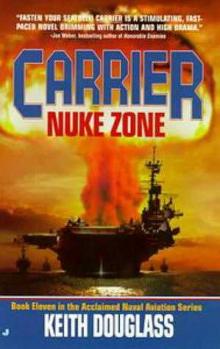 Nuke Zone c-11
Nuke Zone c-11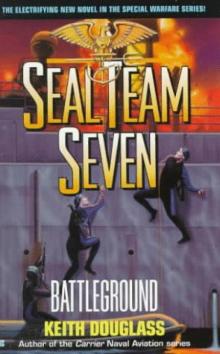 Seal Team Seven 6 - Battleground
Seal Team Seven 6 - Battleground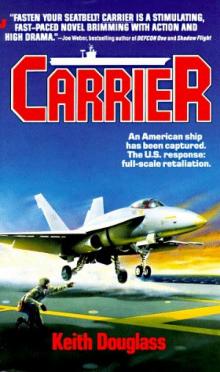 Carrier c-1
Carrier c-1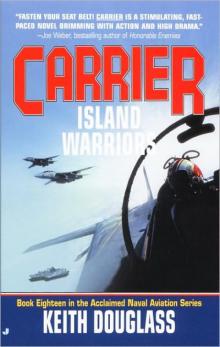 Island Warriors c-18
Island Warriors c-18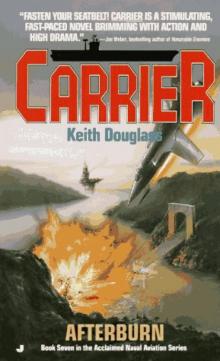 Afterburn c-7
Afterburn c-7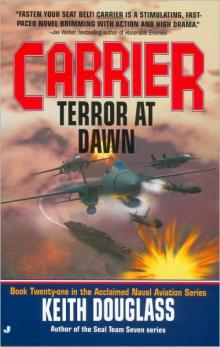 Terror At Dawn c-21
Terror At Dawn c-21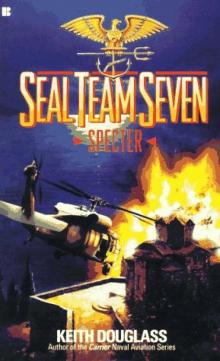 Specter sts-2
Specter sts-2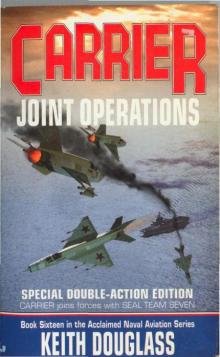 Joint Operations c-16
Joint Operations c-16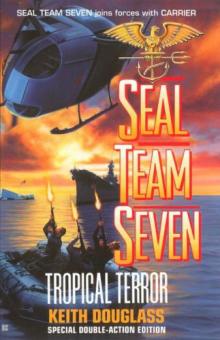 Tropical Terror sts-12
Tropical Terror sts-12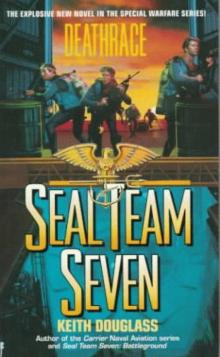 Seal Team Seven 7 - Deathrace
Seal Team Seven 7 - Deathrace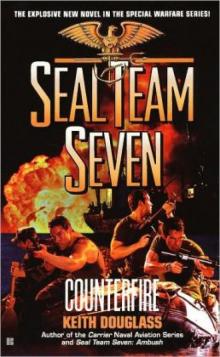 Counterfire sts-16
Counterfire sts-16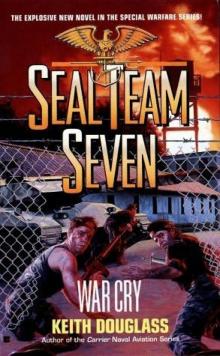 War Cry sts-9
War Cry sts-9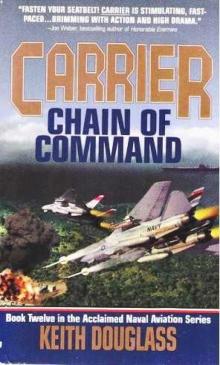 Chain of Command c-12
Chain of Command c-12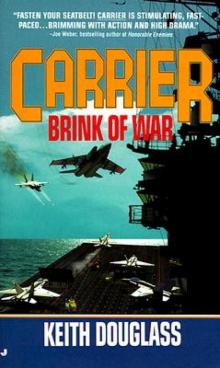 Brink of War c-13
Brink of War c-13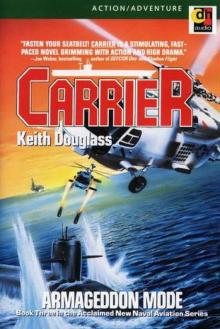 Armageddon Mode c-3
Armageddon Mode c-3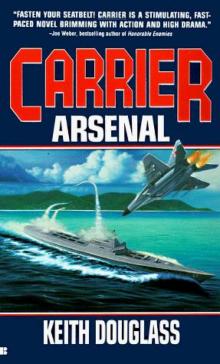 Arsenal c-10
Arsenal c-10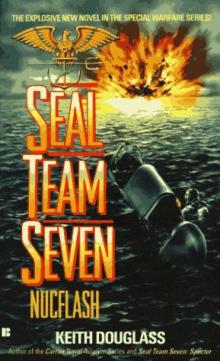 Nucflash sts-3
Nucflash sts-3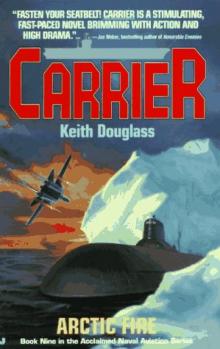 Arctic Fire c-9
Arctic Fire c-9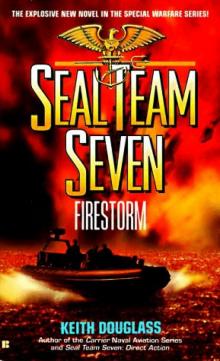 Firestorm sts-5
Firestorm sts-5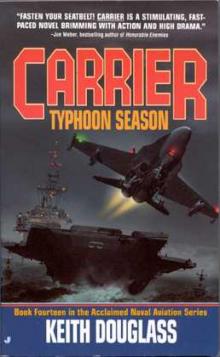 Typhoon Season c-14
Typhoon Season c-14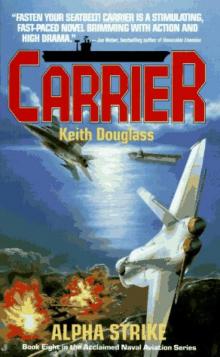 Alpha Strike c-8
Alpha Strike c-8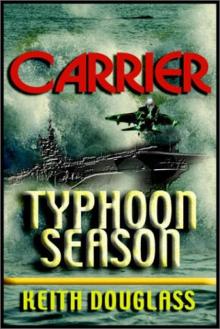 Carrier 14 - TYPHOON SEASON
Carrier 14 - TYPHOON SEASON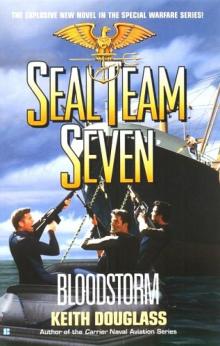 Bloodstorm sts-13
Bloodstorm sts-13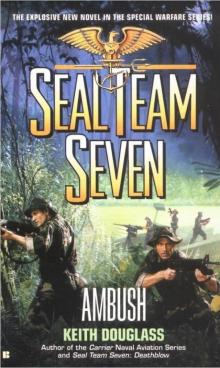 Ambush sts-15
Ambush sts-15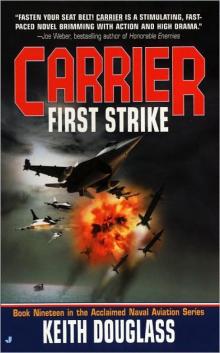 First Strike c-19
First Strike c-19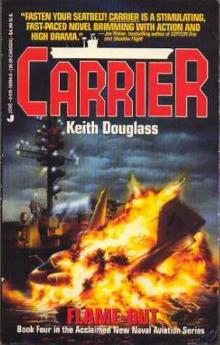 Flame Out c-4
Flame Out c-4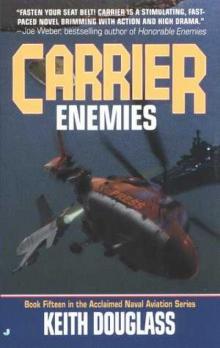 Enemies c-15
Enemies c-15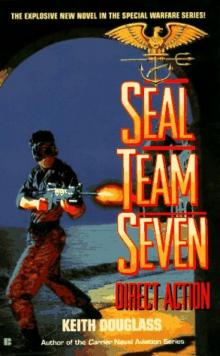 Seal Team Seven 04 - Direct Action
Seal Team Seven 04 - Direct Action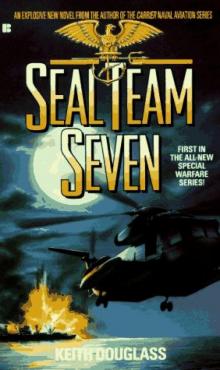 Seal Team Seven 01 - Seal Team Seven
Seal Team Seven 01 - Seal Team Seven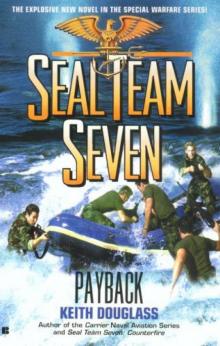 Payback sts-17
Payback sts-17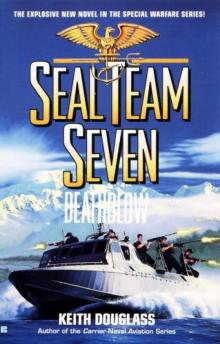 Death Blow sts-14
Death Blow sts-14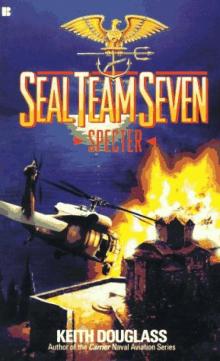 Seal Team Seven 02 - Spector
Seal Team Seven 02 - Spector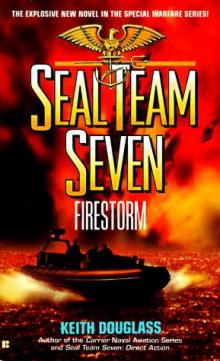 Seal Team Seven 5 - Firestorm
Seal Team Seven 5 - Firestorm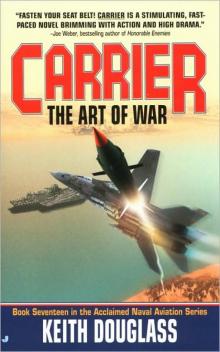 The Art of War c-17
The Art of War c-17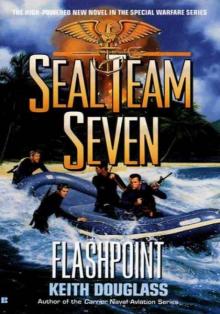 Flashpoint sts-11
Flashpoint sts-11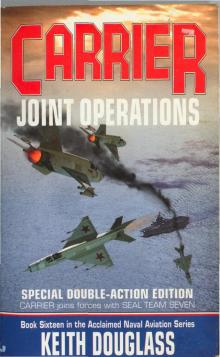 Carrier - Joint Operation Book 16
Carrier - Joint Operation Book 16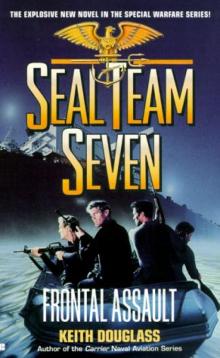 Frontal Assault sts-10
Frontal Assault sts-10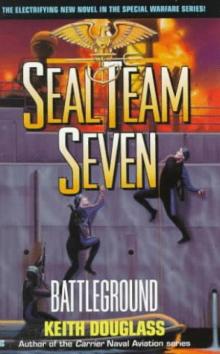 Battleground sts-6
Battleground sts-6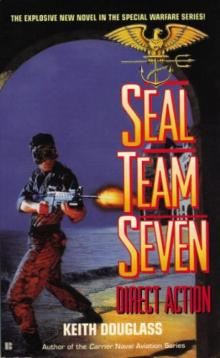 Direct Action sts-4
Direct Action sts-4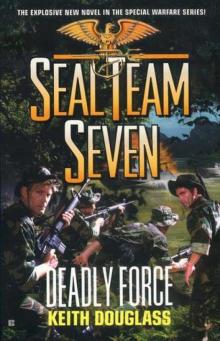 Deadly Force sts-18
Deadly Force sts-18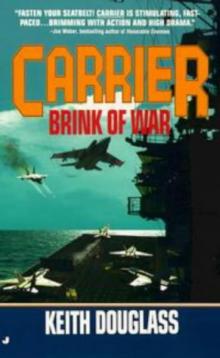 Carrier 13 - Brink of War
Carrier 13 - Brink of War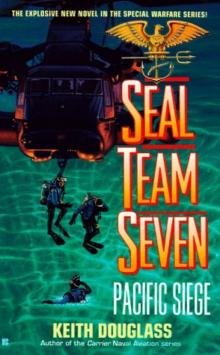 Pacific Siege sts-8
Pacific Siege sts-8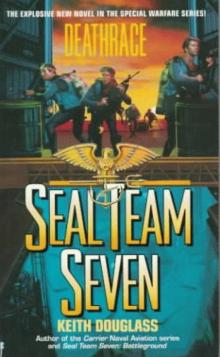 Deathrace sts-7
Deathrace sts-7